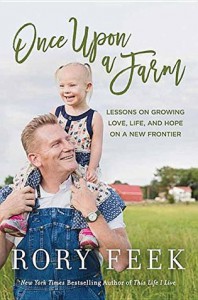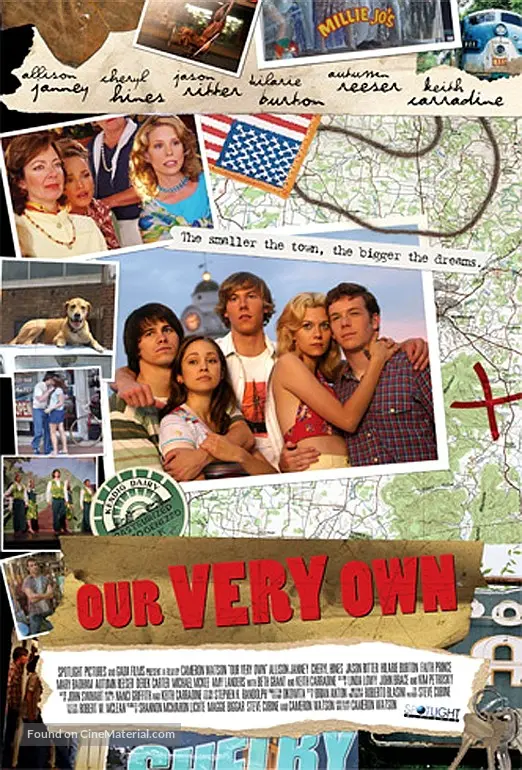

Raising their four-year-old daughter, Indiana, alone, after Joey’s passing, Rory Feek digs deeper into the soil of his life and the unusual choices he and his wife, Joey, made together and the ones he’s making now to lead his family into the future. Now two years after Joey’s passing, as Rory takes their four-year-old daughter Indiana’s hand and walks forward into an unknown future, he takes readers on his incredible journey from heartbreak to hope and, ultimately, the kind of healing that comes only through faith. A raw and vulnerable look deeper into Rory’s heart, Once Upon a Farm is filled with powerful stories of love, life, and hope and the insights that one extraordinary, ordinary man in bib overalls has gleamed along the way. As opposed to homesteading, this is instead a book on "lifesteading" as Rory learns to cultivate faith, love, and fatherhood on a small farm while doing everything, at times, but farming. With frequent stories of his and Joey’s years together, and how those guide his life today, Rory unpacks just what it means to be open to new experiences.
Amazon.com
Two years after the death of his wife and the close of his first memoir, This Life I Live, songwriter and "gentleman farmer" Rory Feek gives readers an update on where his life is today as a single father raising daughter Indiana, now four years old.
The format here is a little different to his first book, much more loosely structured. Still, it works. Feek shares even more details of his life with Joey as well as pivotal moments in his life before and after her. Some of the big ones being around daily lessons he's taking in raising a daughter with Down Syndrome, and the moment his middle daughter came out as a lesbian and the less than admirable initial reaction he had to the news.
Rory explains that while Joey was a master at traditional homesteading, his life experiences lead him to believe his personal strengths lie more in the idea of something he terms "lifesteading", or "growing love and life and hope in the place where you are planted." This struck me as simply implementing the French proverb "Bloom where you are planted" as a way of life... nonetheless, a cool way to go about living!

Lifesteading is about planting yourself in the soil where you live and growing a life you can be proud of. A love that will last. And a hope that even death cannot shake. Like tending a garden filled with vegetables, it too requires preparing the heart's soil and planting the right seeds at the right time and watering them and keeping the weeds of this life and the bombardment of the culture from choking out what you're trying to grow. For us, the harvest has been plentiful. Beyond our wildest imaginations. Dreams that seemed impossible in years past materialized right before our eyes. That doesn't mean there hasn't been disappointments and surprises. Some a lot of people already know about, and some I share in the pages that fill this book. But just because something different than you had imagined has grown doesn't mean that it isn't beautiful. It is.
Through this process, Feek chronicles his experiences and shares them with readers as a way to show others how to maybe find the extraordinary magic woven within moments and places of seemingly ordinary days. Once Upon A Farm also provides Feek a platform where he can give thanks to friends and family (by sharing their heartwarming stories) who have been so instrumental in his various joys and successes.
We also get to see a little more into Feek's creative side, such as the time he enlisted a friend to help turn a former Girls Gone Wild bus into Rory's new touring bus. The story Rory is inspired to write, from the POV of the bus, is weirdly simultaneously hilarious and melancholy.


*In this book, Rory mentions that the dog featured in
Our Very Own (and on the poster) was actually
Joey's dog, Rufus. There's a whole story behind how Joey
trained him to ride on the roof like that.
The format of the book features short chapters, so the book as a whole has potential to be a good supplemental piece for daily devotionals. Feek's stories here are all about embracing the now, including who you are in the moment. His own examples: how he is unapologetic about his favorite color being white (*Yes, he points out, the trouble with this has been explained to him. Repeatedly. He doesn't care.) and his favorite day of the week being Monday.
While the first memoir was more about just getting the framework of his life story out there, this one had a much more inspirational vibe to it. Feek's stories here do push for the idea of embracing the now, but he also encourages readers to make peace with their past as well, even our less rosy moments. Lessons we take from mistakes or even all out failures can show us how to move forward and teach us how to best love future loves.

my favorite chapter header in the book
A new addition here that wasn't offered in the first book: an eight page insert on gloss paper of full color photographs.
FTC Disclaimer: BookLookBloggers.com and Thomas Nelson Publishers kindly provided me with a complimentary copy of this book in exchange for an honest review. The opinions above are entirely my own.









